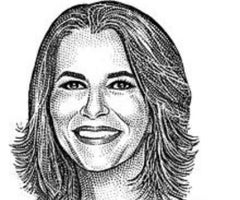MI SELECCIÓN DE NOTICIAS
Noticias personalizadas, de acuerdo a sus temas de interés

“Just spoke to President Nayib Bukele of El Salvador,” President Trump tweeted Friday. “Will be helping them with Ventilators, which are desperately needed. They have worked well with us on immigration at the Southern Border.”
Mr. Trump’s call came the morning after the Salvadoran president triggered the shutdown of the country’s Legislative Assembly by tweeting that his government had “detected significant suspicion of Covid-19” in the chamber.
There was no scientific evidence of a coronavirus outbreak inside the congress. But lawmakers had voted to override a Bukele veto, and were debating the override of another veto the president was threatening, when he decided to break up the session.
It isn’t the first time Mr. Bukele has messed with the independence of El Salvador’s democratic institutions; he has repeatedly defied institutional checks on his power.
Mr. Bukele is popular and isn’t shy about his claims to independent action. His adversaries, he says, are corrupt and only he is honest enough to defend the interests of the Salvadoran people. The coronavirus is his latest excuse for absolute edicts.
The phone conversation with Mr. Trump was probably prearranged. Coming on the heels of the stunt to clear out congress midsession, it had the effect-unintended by the White House, no doubt-of giving a would-be authoritarian a pat on the back.
Amid presidential cries to save lives at all costs during Covid-19, it’s worth recalling how Fidel Castro confronted the AIDS epidemic in the 1980s. The dictatorship tested the population extensively and rounded up the infected. It boasted that its lockup policy slowed the spread of the disease. But as the Chicago Tribune reported in 1989, the “prison-like confinement” until death or a cure exacted a high price from those detained.
The point is that even in a public-health crisis there are civil liberties. Populists who demand blank checks on the pretext of protecting life rarely stop there.
In March Mr. Bukele announced a national lockdown to combat Covid-19 and decreed that violators would be sent to “quarantine centers” because of their “potential” to spread the virus. These centers aren’t set up to protect healthy people from those carrying the virus. This means they could become centers for spreading the disease, and that has terrified Salvadorans.
According to government data more than 4,000 people are being held in these detention facilities where the term of confinement is arbitrary. Efforts by the press to investigate conditions have been met with threats from the government that nosy journalists might be added to its collection of rule-breakers.
When the constitutional chamber of the Supreme Court ruled April 8 that the president couldn’t arrest Salvadorans for violating his order and that law enforcement couldn’t demand entrance into private homes or confiscate vehicles, Mr. Bukele tweeted that he wouldn’t obey the court because it was equivalent to an order from him to “let [Salvadorans] die.”
The court told the Assembly to draft a law regarding quarantine that wouldn’t violate the constitutional rights of Salvadorans. Mr. Bukele said he would veto that bill, and the deputies were whipping the votes for an override when the president emptied the chamber on Thursday night. He has yet to issue that veto but the army and the police continue detaining individuals in violation of the law.
President Bukele has flouted the law before. In February, when the Legislative Assembly didn’t immediately approve an executive request for $109 million to fight organized crime and instead asked for details about how the money would be spent, he barged into the legislature accompanied by heavily armed soldiers. It was Sunday and the elected representatives weren’t in session, but he sat in the speaker’s chair and prayed for “patience” with the “scoundrels” who were in his way.
After criticism at home and abroad for such a raw act of intimidation, Mr. Bukele boasted that had he wanted to take unilateral power, he could have. Good to know.
The claim that the lockdown is about safety doesn’t jibe with an executive initiative approved by the Assembly to give a $300 subsidy to 1.5 million low-income Salvadorans. There are few details about who qualified for that money and there was no plan for executing it. The offer set off a stampede to banks and government offices, where thousands gathered in the streets every day over two weeks trying to get the cash.
The chaos created far more opportunity to spread disease than do people walking outside or driving who are subject to arbitrary detention under Mr. Bukele’s stringent, unconstitutional lockdown.
Governments that back Mr. Trump’s immigration policy and side with U.S. policy on Venezuela may seem like allies. But when they simultaneously undermine democracy at home, as Mr. Bukele is doing, they are working against U.S. interests.
La entidad explicó que la decisión se adoptó tras un análisis técnico, legal, financiero, ambiental y social que se extendió por nueve meses
Turkish Aerospace Industries y Airbus firmaron un acuerdo de cooperación en julio como parte de las negociaciones para la adquisición
En noviembre, el desempleo subió a 4,6%, su nivel más alto desde 2021, y los precios al consumidor aumentaron menos de lo previsto